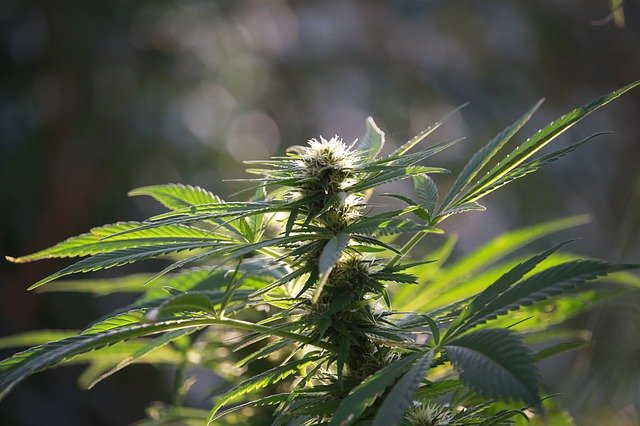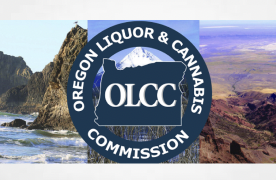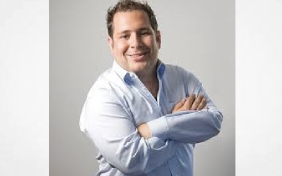Hemp and cannabis are technically the same plant, but in the eyes of the law, they couldn’t be more different. Legally, hemp is defined as Cannabis sativa L. containing 0.3% or less tetrahydrocannabinol (THC), and it is federally legal to cultivate. All forms of cannabis with higher THC contents are considered marijuana and remain federally illegal.

This legal definition has widespread implications on how hemp businesses operate in comparison to cannabis businesses, including in how bankers approach clients in these industries. They may be the same plant at the roots, but hemp and marijuana are banked very differently. This Fincann blog will guide you through the differences between how cannabis and hemp businesses are banked.
How are cannabis businesses banked?
To better understand the nature of hemp banking, it is useful to first look at how “marijuana” businesses are handled.
The primary banking concern surrounding state-legal cannabis businesses is anti-money laundering (AML). While cannabis with more than 0.3% THC is considered federally legal, there is a regulatory framework in place – supported by federal agencies – on how to bank state-legal cannabis operations in a compliant and sustainable way.
This framework requires banks to track every dollar as closely as possible to ensure these funds are not comingled with money from illegal activity. Banks must follow the guidelines under the Federal Financial Institutions Examination Council (FFIEC) Bank Secrecy Act/Anti-Money Laundering (BSA/AML) Examination Manual. Additionally, the U.S. Treasury’s Financial Crimes Enforcement Network (FinCEN) has released significant guidance of how banks should monitor their cannabis clients under the Bank Secrecy Act (BSA).
As of November 2020, there are around 155 banks that serve the cannabis industry. Of those, just 57 serve THC licensees. So, despite the existing regulatory framework, many banks are still hesitant to get involved. However, there is good reason to believe the tide is turning. The three major bank examiner organizations – the FDIC, the Office of the Comptroller of the Currency, and the National Credit Union Association – have all adopted generally the same rules for monitoring banks working with state-legal THC businesses. Furthermore, the federal government has articulated a clear commitment to these regulations; despite THC’s continued status as an illegal substance, not a single bank has suffered consequences for banking marijuana businesses under this federal framework.
How are hemp businesses banked?
When the 2018 Farm Bill was signed into law, it descheduled hemp defined as Cannabis sativa L. containing less than 0.3% THC. Today, the primary banking concern surrounding hemp and CBD products is product integrity.
You may think legalization of hemp means banks were immediately willing to accept hemp and CBD clients. Unfortunately (and surprising to many), the regulatory framework surrounding hemp is much less certain than it is around THC licensees and other “plant touching” business types. The 2018 Farm Bill removed hemp from the U.S. Controlled Substances Act (CSA) and transferred regulatory authority over hemp and CBD from the U.S. Drug Enforcement Agency (DEA) to the U.S. Department of Agriculture (USDA) and the Food and Drug Administration (FDA).
Under the new law, the USDA would be responsible for establishing the rules of hemp cultivation, licensing, and inspection, while the FDA would regulate animal and human consumption of hemp-derived products. While the USDA has made some progress, the FDA has yet to clarify the rules, specifically as they relate to CBD products. The only clear rule the FDA has established is that brands cannot make health claims about CBD products.
This muddy regulatory environment creates uncertainty for bankers. Generally, hemp businesses that do not deal in ingestible products, such as cultivators, hempcrete manufacturers, or hemp paper mills, are considered safe enough under the USDA regulations and able to secure banking. Companies that manufacture consumable CBD, however, are not so lucky – the only type of CBD product the FDA has given the green light to are topicals. All others are unregulated and considered an extreme risk for banks.
What about the banks that work with CBD companies?
Despite the risk, there are some banks out there willing to work with CBD businesses. The challenge for these banks is establishing their own best practices based on their interpretation of the limited guidelines from federal agencies. This has not always gone so well.
One of the first major banks to get into the CBD business – a subsidiary of U.S. Bank called Elavon – once offered merchant processing for CBD sales. It didn’t take long before Elavon started receiving stern warnings from state attorneys general that they were violating state law by facilitating the sale of 0.3% THC products. These state AGs maintained that the only thing permitted under their state laws were products with 0% THC. In March 2019, Elavon dropped its CBD clients entirely, even those who offered CBD isolate products which contain 0% THC, and stepped away from the industry.
This move left many CBD businesses in the lurch. For six months, there was no merchant processing available to the CBD industry. Banks were hesitant to get involved, and state by state patchwork regulations did not make it any easier. For example, if a banking partner based solely in California works with a California CBD company that sells products to Texas, they are unlikely to catch heat from Texas for simply allowing the company to maintain a checking account. However, if that bank has branches in Texas and is facilitating the financing and sale of products through merchant processing, they could be in serious trouble. It is nuance like this that has kept so many banks and merchant processors out of the CBD space.
Finally, in August 2019, a company said they would offer CBD merchant processing services through independent sales organizations, rather than directly through the banks. Shortly after, merchant account providers took the plunge and got involved. Today, securing CBD merchant processing for MasterCard and Visa is available through U.S. banks – it’s just a matter of knowing where to look.
Fincann’s extensive network of banking partners includes CBD friendly banks. Despite the patchwork nature of the industry and the varying, constantly changing rules and regulations, Fincann can help connect your CBD business with a banking partner.
What happens when cannabis is federally legal?
To add another layer of complexity to this already messy situation, marijuana – that is, cannabis containing greater than 0.3% THC – is expected to be federally descheduled in the not-so-distant future. If and when that happens, it will create a similar situation as the 2018 Farm Bill. Previously considered federally illegal, but with an existing regulatory framework for banking built around state-legal businesses, cannabis will suddenly be handed to the same federal agencies as hemp and these adjacent regulations will have to be reconciled.
While the focus in cannabis banking is currently on anti-money laundering, it would shift drastically toward product integrity. Today, there are rigorous standards and oversight on THC licensees to ensure every dollar is tracked as carefully as possible to avoid the comingling of funds earned through illegal activity. With the 0.3% THC distinction now completely arbitrary in terms of legality, banks will once again be clamoring for regulatory clarity.
Opening a hemp bank account with Fincann
The chaotic and everchanging nature of how hemp and cannabis are banked is not going away anytime soon, but until stability comes, hemp businesses of all types, including those who manufacture ingestible products like hemp derived CBD tinctures, still need to be banked in a way that remains sustainable for the long term. Hemp farmers, processors, and innovators exploring hemp’s myriad ways it’s theorized to save the plant need stable banking, plain and simple.
Fincann can help. It’s critical for hemp businesses to have a partner who can not only find you banking, but ensure you stay connected to a network of cannabis-friendly banking partners should anything change. Dozens of financial institutions in our Cannabis Banking Financial Network actively and openly serve this industry and may be able to help you bank above board according to all regulations set forth. If you own a hemp business, fill out our pre-qualification form today so we can find the right banking partner for your hemp (or CBD, or cannabis) business.

















